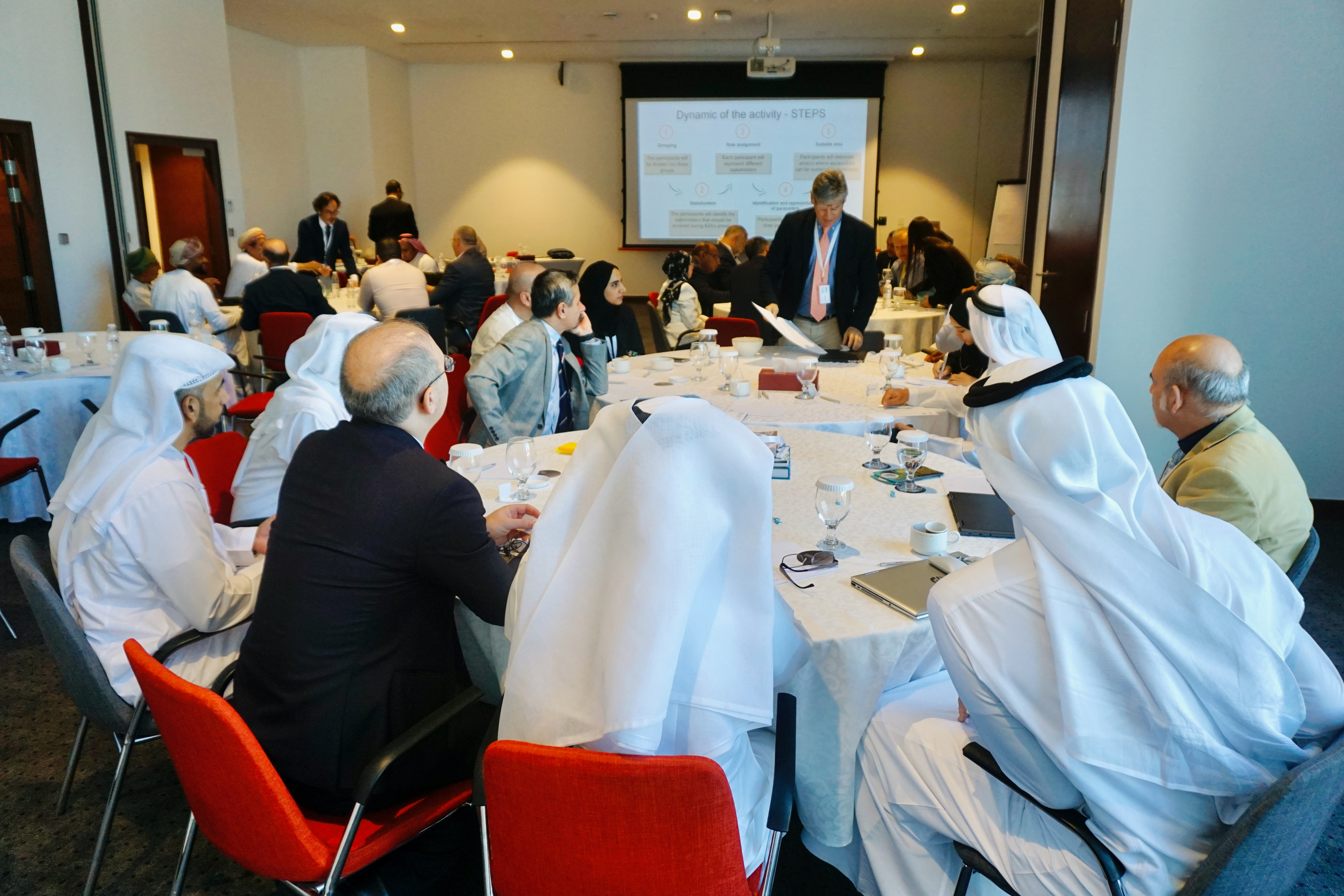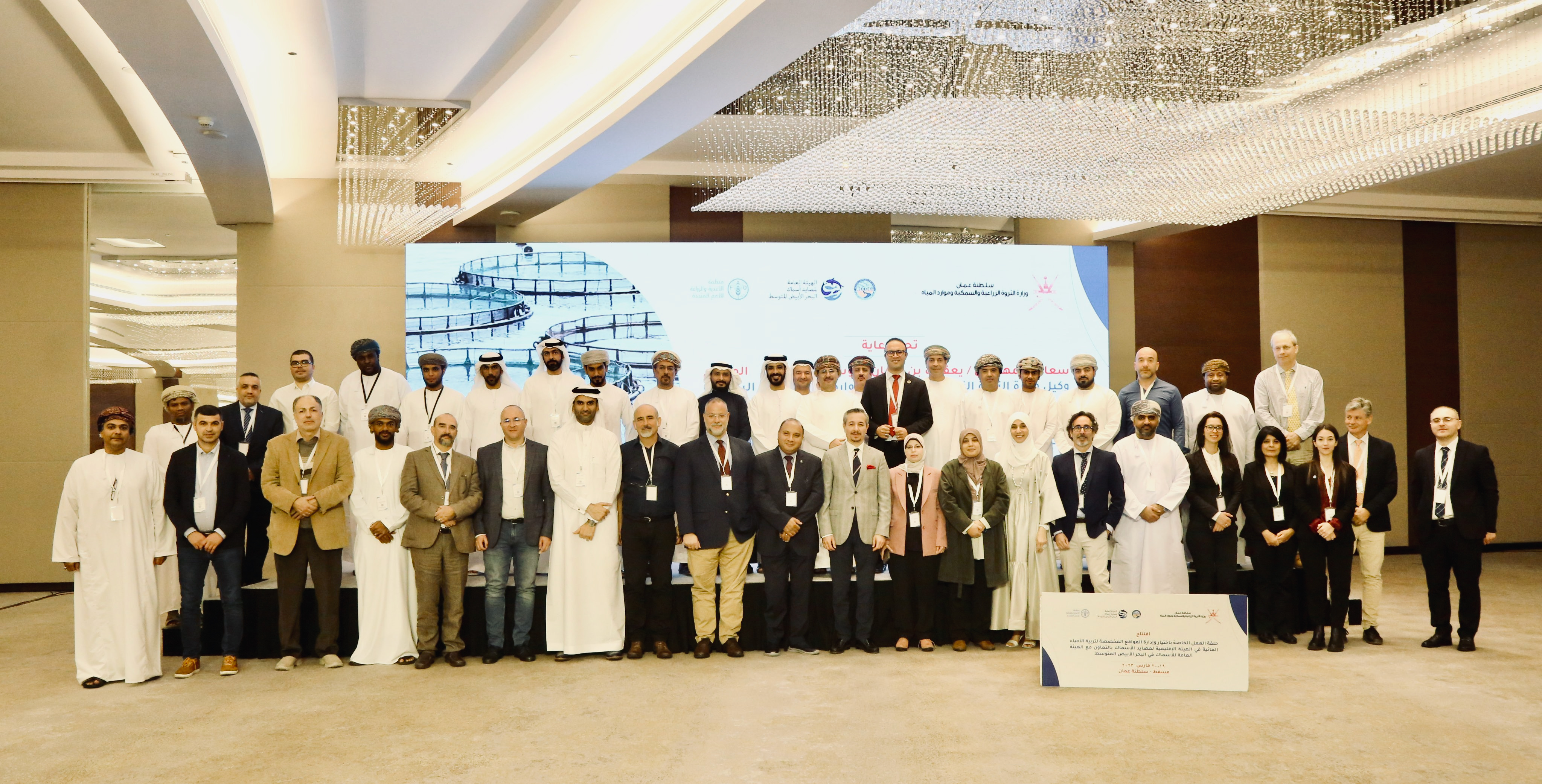Highlighting best practices on allocated zones for aquaculture at joint GFCM and RECOFI workshop
.png)
The General Fisheries Commission for the Mediterranean (GFCM) of the Food and Agriculture Organization (FAO) of the United Nations in collaboration with the Regional Commission for Fisheries (RECOFI) organized a two-day workshop on allocated zones for aquaculture (AZAs) in Muscat, Oman.
Allocated zones for aquaculture are becoming an increasingly important tool in the Mediterranean and Black Sea region for selecting optimal locations to site farming operations, with the aim of minimizing potential conflicts and maximizing synergies with other uses and activities taking place in the same areas, such as fishing and tourism.
“Today it is essential that we consider the development of aquaculture within the broader context of marine spatial planning. By doing so, we can minimize the potential impacts on coastal areas, avoid competition with other users, and preserve ecosystem services,” said Miguel Bernal, GFCM Executive Secretary.
.jpeg)
©GFCM/Ministry of Agriculture, Fisheries and Water Resources of the Sultanate of Oman
More than 90 participants joined the workshop and had the chance to discuss how best to incorporate aquaculture within broader marine spatial planning frameworks and to share their experiences on site selection. The workshop provided a unique opportunity for the GFCM and RECOFI to share experiences and knowledge on sustainable aquaculture development within AZAs, and to promote collaboration among member countries towards the sustainability of the sector.
“The cooperation between GFCM and RECOFI is crucial in ensuring the sustainable management of aquaculture zones. By working together and sharing our expertise, we can advance our common goal of achieving sustainable aquaculture practices in the region,” said Ahmed AlMazroai, RECOFI Secretary.
During the workshop, the results and the methodological process applied for the implementation of AZAs in the GFCM and RECOFI areas were presented and discussed. The participants also shared information on aquaculture licensing and leasing processes and environmental monitoring programmes.

©GFCM
“In the Sultanate of Oman, we believe in the importance of developing the fish farming sector in a sustainable manner that ensures the continuity of production from this activity without environmental impacts on natural resources,” said Dr Abdulaziz Al-Marzouqi, General Director of Fisheries Resources Development at the Ministry of Agriculture and Fisheries, Sultanate of Oman.
The GFCM 2030 Strategy for sustainable fisheries and aquaculture in the Mediterranean and the Black Sea has a dedicated target for aquaculture, aiming to create a sustainable and resilient sector which contributes to the FAO vision for Blue Transformation by promoting better quality farmed fish through harmonized, equitable and socioeconomically sensitive processes.
In this regard, the GFCM has published a guide as well as a toolkit on AZAs in order to promote their implementation and make them a priority to responsibly develop, manage and transform the sector.
“One of the important activities conducted during this workshop was a common practical exercise and a simulation of a real case, with the interaction and collaboration of all relevant stakeholders,” said Houssam Hamza, GFCM Aquaculture Officer.
The GFCM is working hard to promote the integration of aquaculture in coastal zones across the region, and the wider implementation of AZAs has a key part to play in the process. In this sense, the GFCM has provided technical assistance to several countries (such as Albania, Lebanon, Georgia, Morocco, Palestine and Tunisia) on the establishment and carrying capacity estimation of AZAs.

©GFCM/Ministry of Agriculture, Fisheries and Water Resources of the Sultanate of Oman
On the last day of the workshop, a practical session laid the groundwork to better understand the participatory approach and the need to involve coastal stakeholders in the establishment of AZAs. The participants simulated part of the AZA implementation process, including the identification of parameters and optimal thresholds. Three virtual case studies in particular proved the need to involve different stakeholders in order to reach a consensus among priorities and users.
